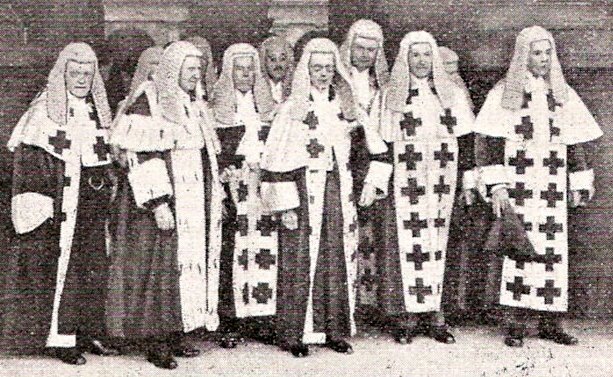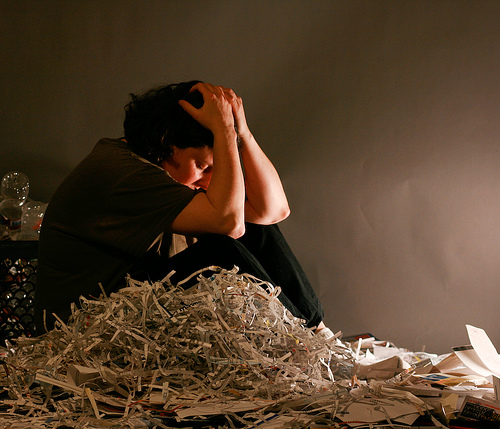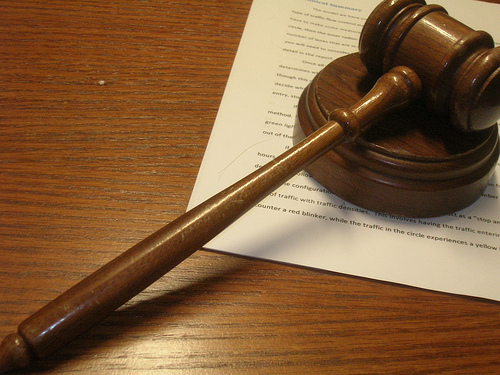(Part 1)

So anyone demanding the election of judges should understand this: there is a conflict between accountability and impartiality. It’s often hard to get the judges both to be independent and to answer to the people. For example, when the government throws a citizen to the wolves in a foreign country, an independent judge will lawfully award her damages. A judge worried about re-election may cave to his sense of the mood among the majority of taxpayers.
When judges apply straightforward law to straightforward facts, the accountability argument is especially weak. The law is an expression of the majority’s will. When legislatures pass laws, their straightforward applications are obvious. We expect judges to apply such laws almost mechanically. In these cases, judges are pretty much delegates of the legislature. They don’t make any law so they should not be accountable beyond the basic professional standards.
 And don’t forget the Constitution—the super law. Its very purpose is to protect some principles against the majority’s will. In Canada, these principles include the makeup of our political system and the fundamental human rights. Judges can strike federal laws when they overstep the constitutional bounds. This is an awesome power of the judiciary. It usually uses it against the majority, so how can anyone expect it to be accountable to the majority at the same time?
And don’t forget the Constitution—the super law. Its very purpose is to protect some principles against the majority’s will. In Canada, these principles include the makeup of our political system and the fundamental human rights. Judges can strike federal laws when they overstep the constitutional bounds. This is an awesome power of the judiciary. It usually uses it against the majority, so how can anyone expect it to be accountable to the majority at the same time?
When judges apply ambiguous non-constitutional rules, the accountability appears more important. The legislature, either intentionally or accidentally, leaves gaps in the law. It is up to the judiciary to choose one interpretation of the law when some new, unusual dispute finds a hole in the rules. Trial judges have another important power that may need accountability. They are free to decide what facts to take as the truth and what facts to ignore after hearing both parties. Sometimes, juries of ordinary citizens do this job, but in Canada usually judges “find factsâ€.
 But even when accountability is reasonable, it is practically too difficult to have. Judges are different from politicians. Majorities have a right to call the government to account on every political decision. But as we just saw, citizens can claim a right to scrutinize only some judicial rulings. This brings difficulty and uncertainty. Most people do not have legal training. Citizens will have a hard time telling decisions open to their scorn from untouchable rulings. Using more government resources to explain or filter judicial decisions will overburden a system that is already bursting at the seams.
But even when accountability is reasonable, it is practically too difficult to have. Judges are different from politicians. Majorities have a right to call the government to account on every political decision. But as we just saw, citizens can claim a right to scrutinize only some judicial rulings. This brings difficulty and uncertainty. Most people do not have legal training. Citizens will have a hard time telling decisions open to their scorn from untouchable rulings. Using more government resources to explain or filter judicial decisions will overburden a system that is already bursting at the seams.
The good news is there are alternatives to the judiciary’s direct accountability through elections. First, we can choose judges very carefully. The Parliament is free to set standards for judicial selection. Second, we can monitor the judiciary for obvious abuse. The police are free to investigate judges suspected of crimes. The Crown is free to charge them if there is enough evidence. Third, we have the appeal route when judges make errors of law. It’s a time-tested but expensive mechanism. Finally, perhaps we should have more juries to make fact-finders more representative of the general population. Unlike the US, Canada has very few jury trials. When a jury makes a verdict, it’s one fewer judge to accuse of being unaccountable to the people.
 There are good reasons to demand election of our judges. But the reasons not to are even better. In conclusive cases and in many constitutional disputes the judges should not owe any accountability to the majority. Telling the difference could be too costly for the public, but any mistakes can undermine the administration of justice or the Constitution. Judges protect us not only from illegality but also from ourselves. It’s a huge role. Much accountability is already there through law enforcement and regulation of the bench. If that’s not enough, we could use juries more often. Beyond that, we will have to trust our judges. They have usually been doing a good job anyway.
There are good reasons to demand election of our judges. But the reasons not to are even better. In conclusive cases and in many constitutional disputes the judges should not owe any accountability to the majority. Telling the difference could be too costly for the public, but any mistakes can undermine the administration of justice or the Constitution. Judges protect us not only from illegality but also from ourselves. It’s a huge role. Much accountability is already there through law enforcement and regulation of the bench. If that’s not enough, we could use juries more often. Beyond that, we will have to trust our judges. They have usually been doing a good job anyway.
